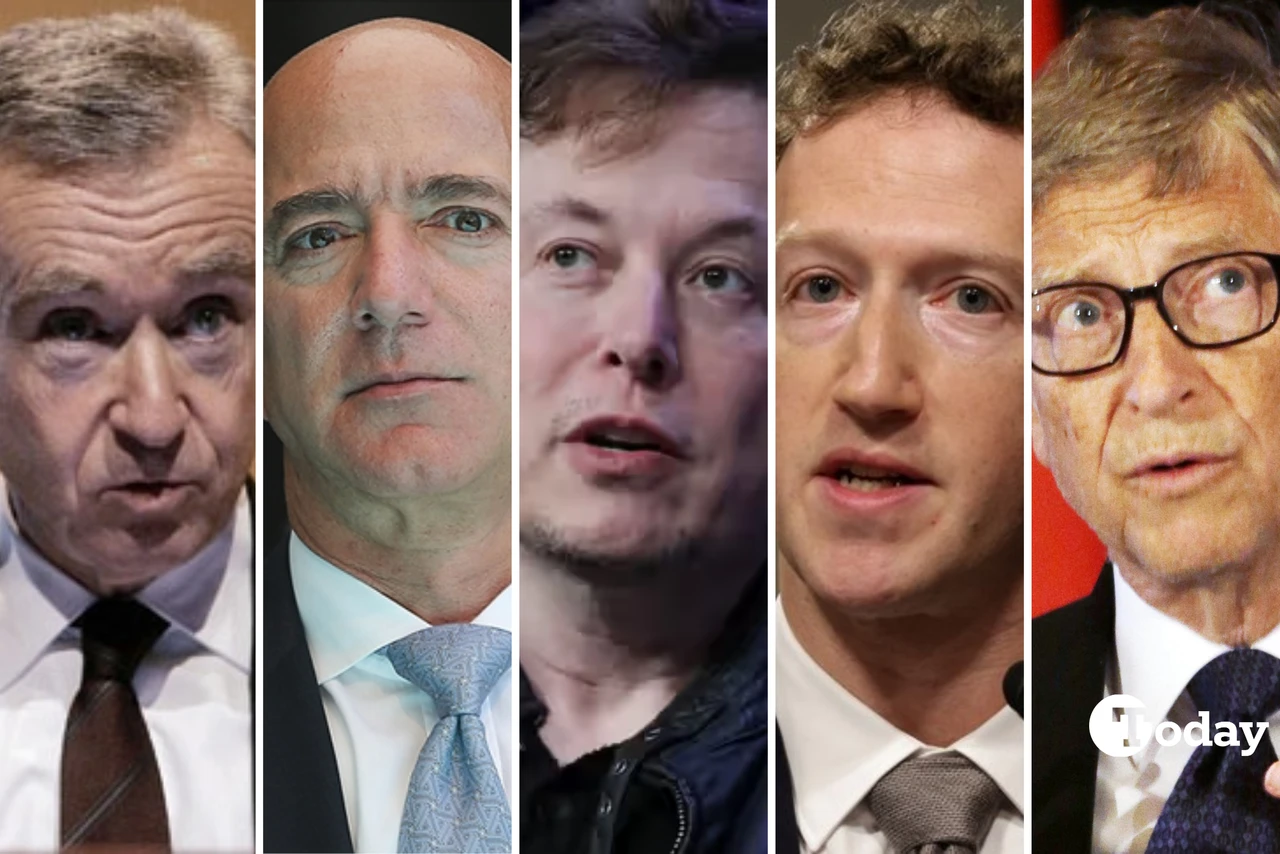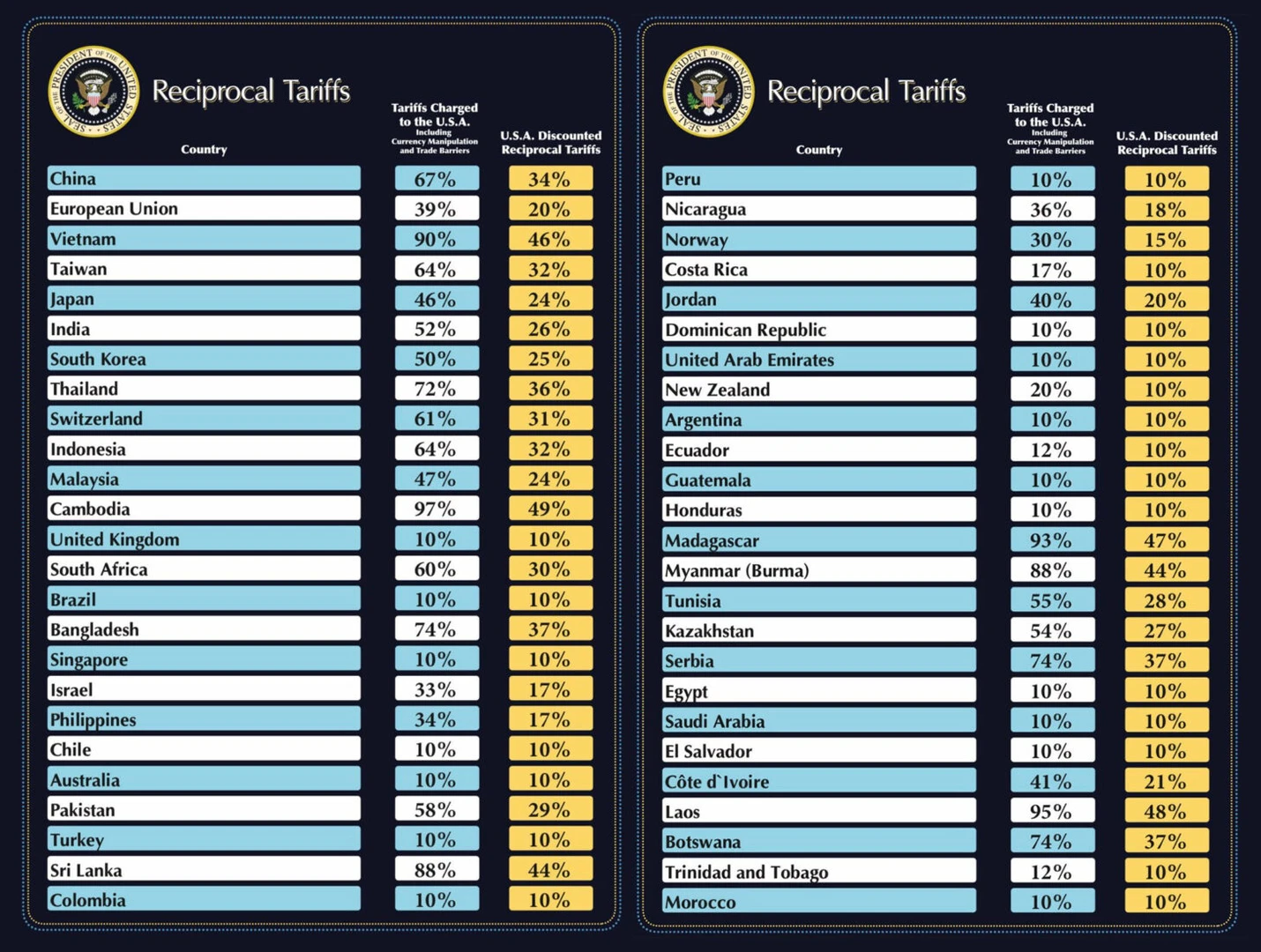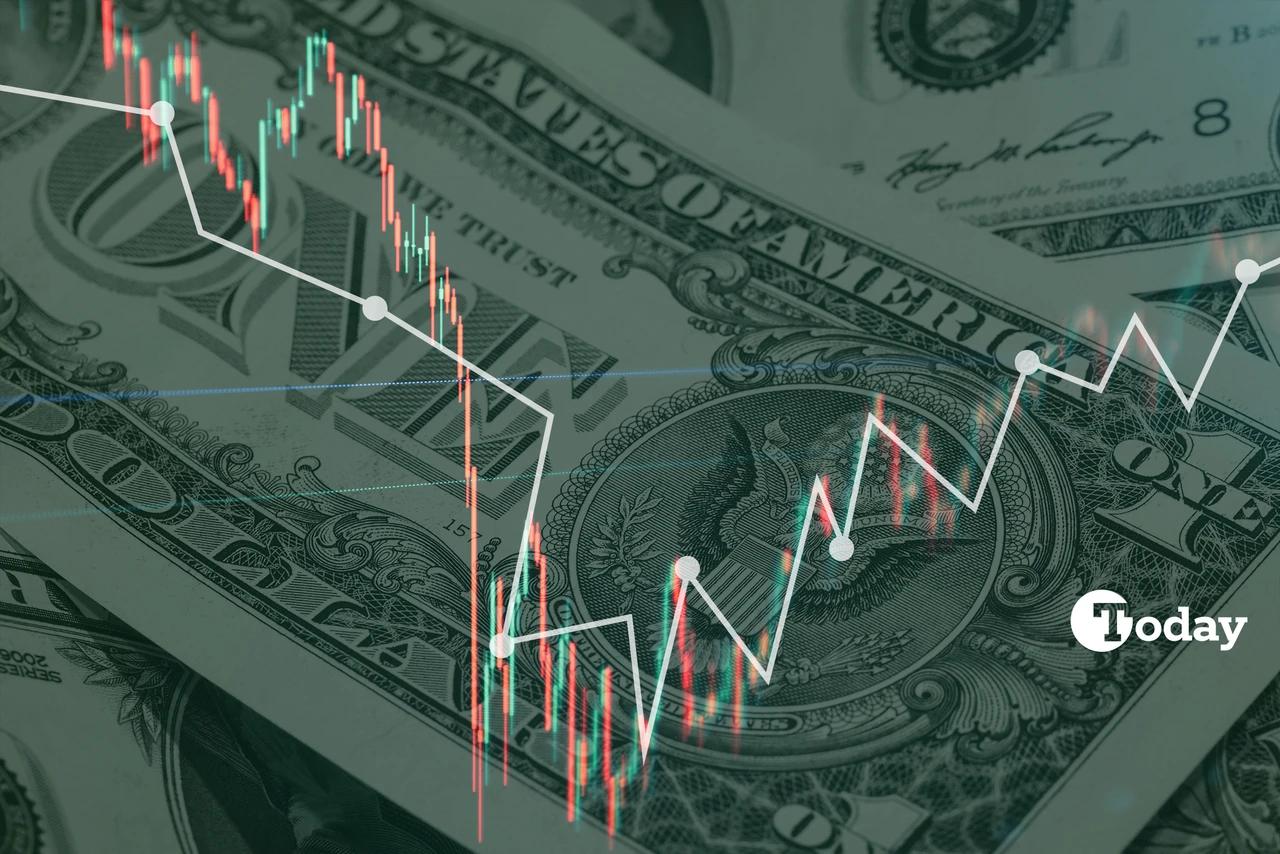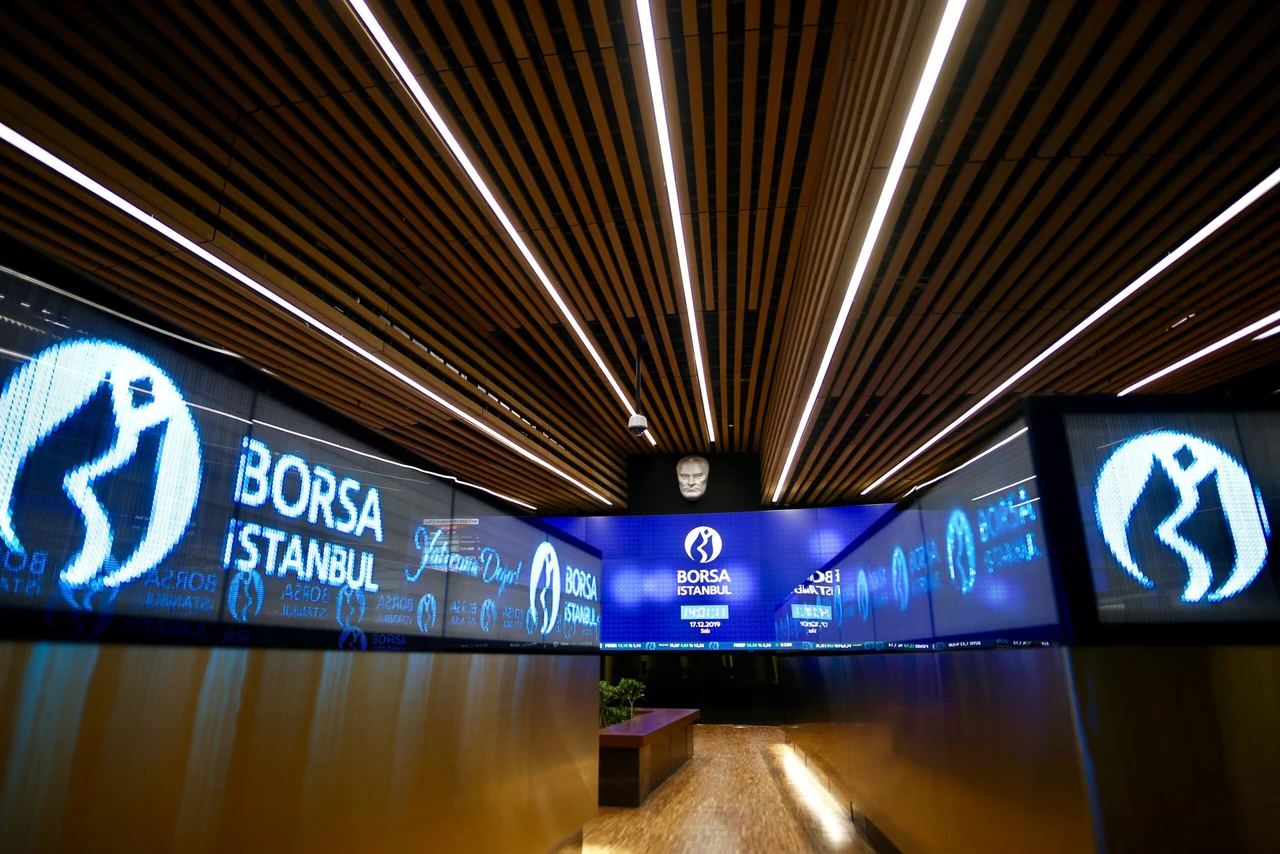Wealthiest caught in crossfire: Top billionaires bleed tens of billions amid Trump tariffs
 Photo combination shows the photos of Bernard Arnault, Jeff Bezos, Elon Musk, Mark Zuckerberg, and Bill Gates from left to right, respectively, created on Apr. 6, 2025. (Collage by Türkiye Today)
Photo combination shows the photos of Bernard Arnault, Jeff Bezos, Elon Musk, Mark Zuckerberg, and Bill Gates from left to right, respectively, created on Apr. 6, 2025. (Collage by Türkiye Today)
U.S. President Donald Trump’s announcement of new tariffs on Thursday triggered a massive sell-off across global markets, reigniting fears of an escalating trade war. The sweeping measures led to significant losses for investors and wiped billions off the fortunes of the world’s five richest individuals.
By Saturday, the United States had begun implementing reciprocal tariffs initially introduced during Trump’s presidency. The new measures start with a baseline tariff of 10%, with planned increases ranging from 11% to 50% by April 9. Imports from the European Union are now subject to a 20% tariff, while Chinese goods face a steep 34% levy, raising the overall tariff burden on Chinese imports to 54%.

These so-called “Trump tariffs,” which were a cornerstone of his campaign rhetoric and have been consistently emphasized throughout his political tenure, delivered a heavy blow to global financial markets. Already weakened by sluggish performance since the beginning of the year, markets plunged sharply in response. The U.S. was hit particularly hard, with Wall Street suffering its worst decline in more than five years, erasing approximately $10 trillion in market value in just a few days.
According to Bloomberg’s Billionaires Index—a daily ranking of the world’s wealthiest individuals based on market activity, economic factors, and proprietary Bloomberg data—the combined net worth of the top five billionaires dropped by $48.61 billion as of Friday’s close. Their collective year-to-date losses have now reached $225.28 billion.
How Trump’s tariffs hammered the world’s richest
Among those most severely impacted by the market turbulence were five of the world’s most prominent billionaires, each representing major global industries directly or indirectly affected by the new tariffs.
Elon Musk
Elon Musk suffered the largest single-day financial loss among the group, despite being one of the leading supporters of Donald Trump during his election campaign and currently serving as an advisor. His net worth declined by $19.9 billion.
As the CEO of Tesla, Musk oversees a company that is deeply reliant on international supply chains for the production of electric vehicles. Key components such as lithium-ion batteries, semiconductors, and various auto parts are sourced from countries including China and several EU member states—regions now subject to steep tariff hikes.
These increased costs not only disrupt Tesla’s production pipeline but also reduce the company’s profit margins and investor confidence.
Given that the automotive sector is already grappling with high raw material prices and fluctuating demand, the sudden imposition of tariffs has added a significant burden, making Tesla one of the most exposed companies in this climate of economic uncertainty.
Jeff Bezos
Jeff Bezos, founder and executive chairman of Amazon, witnessed a $7.59 billion drop in his net worth. Amazon operates one of the most complex and far-reaching global logistics networks, depending heavily on inexpensive imports, particularly electronics, apparel, and consumer goods from China and the European Union. The newly enforced tariffs are expected to increase operational costs across Amazon’s extensive supply chain, particularly for goods sold through its online marketplace.
In addition to logistical challenges, Amazon is also vulnerable to declines in consumer sentiment. Market turbulence tends to dampen household spending, and reduced purchasing power among consumers can directly impact revenue growth projections for e-commerce platforms.
Mark Zuckerberg
Mark Zuckerberg, the CEO of Meta Platforms (formerly Facebook), experienced a loss of $9.44 billion. Although Meta does not engage in the physical trade of goods, its core business model—built around digital advertising—makes it highly sensitive to economic volatility. Advertising expenditure is often one of the first areas companies cut during financial uncertainty, especially when global supply chains are disrupted and sales forecasts weaken.
Furthermore, with businesses in both China and the EU facing increased production costs and slower demand because of tariffs, their willingness to spend on digital advertising across platforms like Facebook and Instagram diminishes. This chain reaction affects Meta’s bottom line, leading to a decline in investor confidence and share prices, which ultimately impacts Zuckerberg’s net worth.
Bernard Arnault
French billionaire Bernard Arnault, chairman and CEO of LVMH, lost $5.23 billion amid the market decline. LVMH controls some of the world’s most prestigious luxury brands, including Louis Vuitton, Christian Dior, and Moet & Chandon, and its profitability is heavily dependent on high-income consumers in the United States and China.
The newly imposed 20% tariff on EU imports and the 34% tariff on Chinese goods are likely to dampen luxury spending in these markets.
Not only do these tariffs make European luxury items more expensive in foreign markets, but they also undermine consumer confidence at the top end of the market. Additionally, geopolitical tensions and trade restrictions tend to reduce tourism and international shopping, both major sources of revenue for the luxury sector.
Bill Gates
Bill Gates saw a decrease of $6.45 billion in his personal fortune. Though Microsoft—the primary source of Gates’s wealth—is not directly impacted by tariffs on imported goods, the tech sector at large was heavily affected by the market-wide sell-off.
Investor sentiment soured sharply as concerns over rising costs, supply chain instability, and global demand contraction spread across technology companies.
Despite Microsoft’s relatively stable business model, which focuses on software, cloud computing, and enterprise services, it could not remain insulated from broader market fears. Gates’s portfolio, known for being more diversified and conservative compared to others on the list, helped limit the extent of his losses, with his year-to-date decline standing at a relatively modest $3.38 billion before the latest market turmoil.



